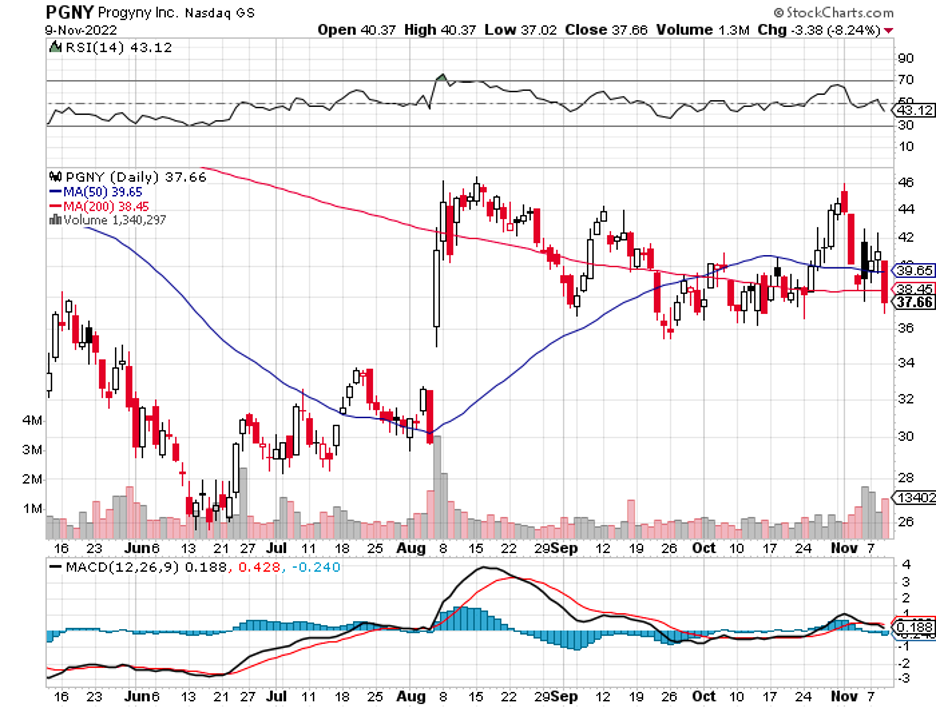A Rarity in A Chaotic Market
Infertility is one of the most common health concerns in the United States.
According to the Centers for Disease Control and Prevention, among heterosexual women between 15 and 49 years old without prior births, about 1 in every 5—or 19%—could not get pregnant after 1 year of trying.
Meanwhile, about 1 in 4, or 26%, of women in this category experience difficulty conceiving or carrying a pregnancy to full term.
The US Census Bureau also disclosed that the average age of women planning to get pregnant has climbed from 27 to 30—the highest ever recorded. Consequently, when some women start trying to have a baby at a later age, they encounter more challenges because of a decline in fertility.
Based on recent CDC data, 12.2% of couples struggle with infertility. Male infertility accounts for 1/3, females for 1/3, and the rest is a combination.
Treatment, although available, is typically costly. Known therapies include surgery, assisted reproductive technology like IVF, and drugs.
Due to the problems linked to affordability, employers have been attempting to cover fertility treatments in their employee health plans. This practice has become more common in recent years as companies strive to focus more on equity and diversity.
Based on a survey by Mercer, 42% of major companies with 20,000 or more workers included IVF treatments and 19% covered egg freezing in their health plans in 2020. This is a notable leap from the 36% and 6% recorded in 2015, respectively.
Needless to say, adding fertility benefits as part of the coverage serves as a tool that enables employers to stand out in a highly competitive labor market.
This is where Progyny (PGNY) comes in.
Progyny is a rarity amid the chaotic market of 2022. That is, it is a growth company that managed to outperform the overall market.
Progyny is a specialized company that offers fertility benefits management services. It is supported by a vast network of fertility experts, with 900 specialists spread across 650 clinics throughout the US.
The company leverages its network of experts and combines their knowledge with a data-driven model to provide a service to employers with employees trying to get pregnant.
Progyny basically gathers the resources available to the clients and providers and makes these materials not only more easily accessible but also more effective.
It has a Smart Cycle program, which enables subscribers or members to customize or modify their treatment plans.
The companies can control the costs given the comprehensive information and availability of experts to consult. In turn, this can offer more attempts to get pregnant without the fear of health plan coverage running out in the middle of treatment.
What is the potential of this business?
Progyny has steadily expanded since its creation in 2016. Its revenue has more than doubled since then, rising from $229.7 million in 2019 to $500.6 million in 2021.
Given its trajectory, the company’s revenue is expected to increase by 47% to 55% by 2022.
Progyny recorded strong growth in the third quarter of 2022. Its sales jumped by 68% to reach $205.4 million, beating analysts’ projections of $194.5 million.
The company also boosted its full-year guidance for 2022 from $755 million to $780 million and continues to add new clients while impressively retaining almost 100% of its existing customers.
The long-term outlook for Progyny is promising as the market value for fertility platforms and services is estimated to grow at a 4.7% compound annual rate until 2030. By then, the market would be worth roughly $48 billion.
After all, more and more individuals are looking into fertility services, which means employers will keep viewing this benefit as a requirement. That means there wouldn’t be any concerns regarding any short-term drop-off in the demand for Progyny’s services.
This should indicate consistent, if not continuously growing, revenue.
With a market capitalization of a little above $4 billion, Progyny is a promising long-term investment as it is a pioneer in a lucrative market that’s just begging to be disrupted.

